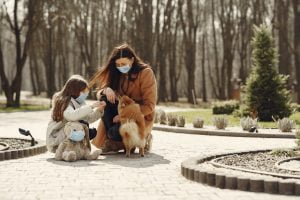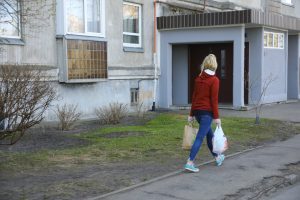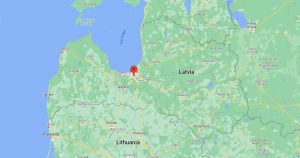In the spring of 2020, at the beginning of the Covid-19 pandemic, the volunteer help movement “Stay at Home” was established. The movement coordinated volunteers all over Latvia, bringing together people who need practical help with those who wanted to provide it.
About Easy to help
The volunteers’ movement #stayhome is a self-organised group that by using technologies – an app with tasks – helps those most in need. The movement was established in the spring of 2020, at the beginning of the Covid-19 pandemic. The movement coordinates volunteers all over Latvia, bringing together people who need practical help with those who want to provide it. Covid-19 restrictions that were implemented as a response to the pandemic especially affected high-risk groups such as senior citizens. It was crucial for their safety to stay at home. Movement’s volunteers assisted in the purchase of food, hygiene items, and over-the-counter medications helped out by walking the dogs and were available for telephone calls and other support to those in quarantine or self-isolation, mutually agreeing on the amount of assistance and the type of support with its recipients.
At the beginning of the pandemic, the movement mobilised 800 volunteers in a very short time. In those days, on average 37 deliveries were ensured per day, and 64 local coordinators were working to coordinate volunteers across the country. Many local coordinators have also helped beyond the scope of the movement. In the past two years, the movement has transformed to be able to respond to crisis situations and other ongoing challenges beyond just the Covid-19 response. They have supported Belarus’ civil society after the attacks that followed the Presidential elections in August 2020 and provided support for Ukraine after the start of Russian aggression in February 2022.
Duration of the good practice
2020 – ongoing
The main institution in charge of the Good practice
Biedrība “Paliec mājās”
Inese Vaivare
The geographical scope of the Good practice
National
Location of the Good practice
Territory of Latvia
Resources needed
The main resources needed are volunteers and financial resources to ensure the possibility to cover basic administrative and implementation costs.
Evidence of success
During the early stages of the Covid-19 pandemic, the #stayathome movement managed to mobilise 800 volunteers. On average 37 deliveries were made per day and 64 local coordinators were active in assuring the smooth workflow of volunteers across Latvia.
In the past two years, the #stayathome movement has managed to transform to be able to respond to crisis situations and other ongoing challenges beyond just the Covid-19 response. They have supported Belarusian civil society after the attacks after the Presidential elections in August 2020 and provided support for Ukraine after the aggression of Russia on February 24, 2022.
The practice achieved international recognition and has already been transferred to Moldova through a project financed by the Ministry of Foreign Affairs.
Challenges encountered
So far no challenges have been encountered, but we foresee possible challenges in enlisting volunteers and assuring quick mobilisation in times of crisis as well as not receiving enough donations to assure smooth operation of all administrative and implementation tasks.
Potential for learning of transfer
In the scope of the movement, an app was developed. The app enables citizens to publish their need for help and volunteers to respond to their needs. The best thing about it is that it enables direct communication between volunteers and citizens without much interference from intermediaries. As proven in the last two years the concept is highly adaptable to different types of crises.
How to start?
Funding
Since the majority of work is based on volunteering, the majority of funds are used to cover basic administrative and implementation costs.
Partners
Establish a small core team that will be responsible for implementing day-to-day activities. For better implementation of the program and to avoid burnout of volunteers it is necessary to enlist and mobilise a high number of volunteers in order to be able to provide assistance in times of crisis. Since the implementation depends on donations it is vital to keep good relationships with existing donors and always search for new donors.
Volunteer training
No special volunteer training is needed.



